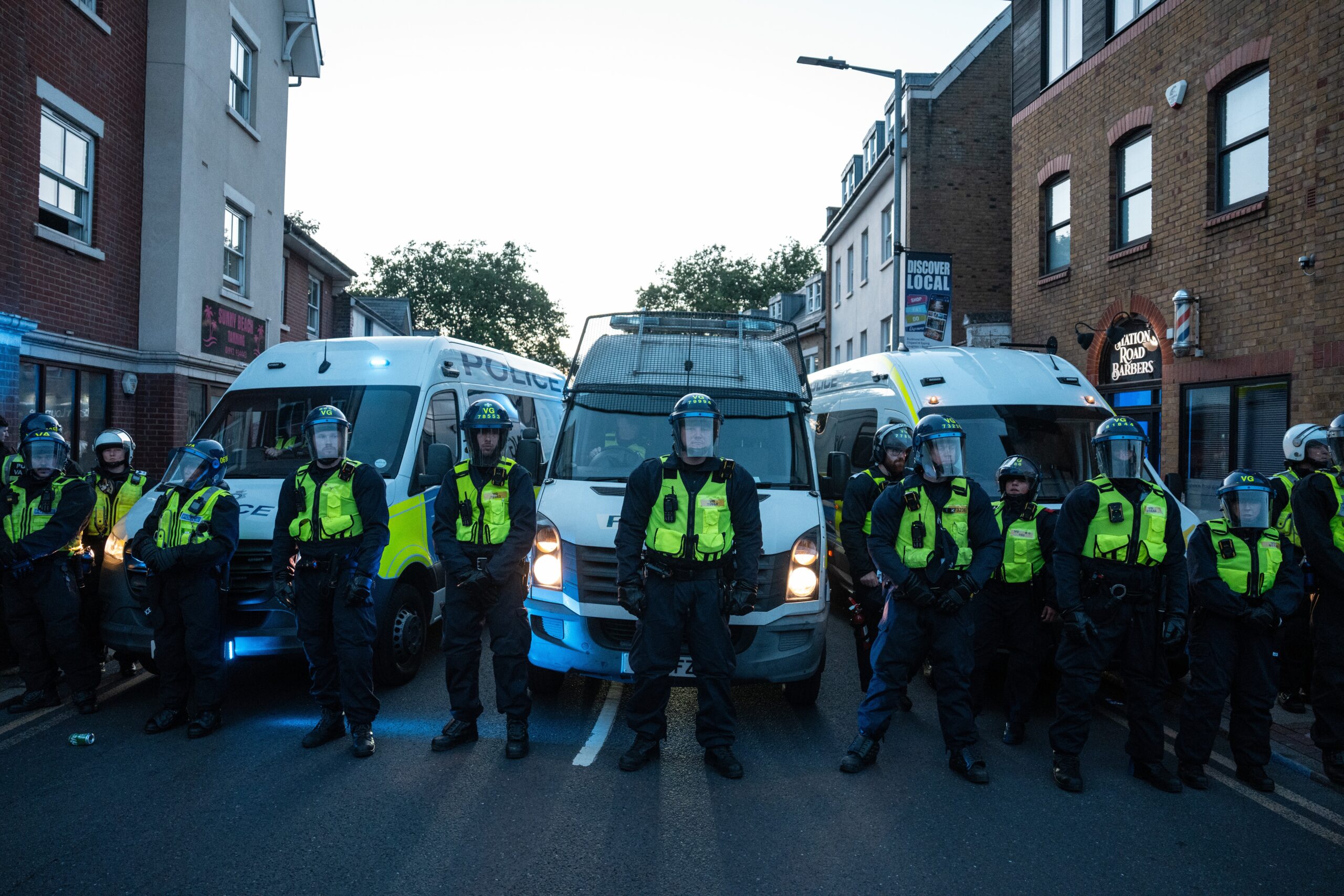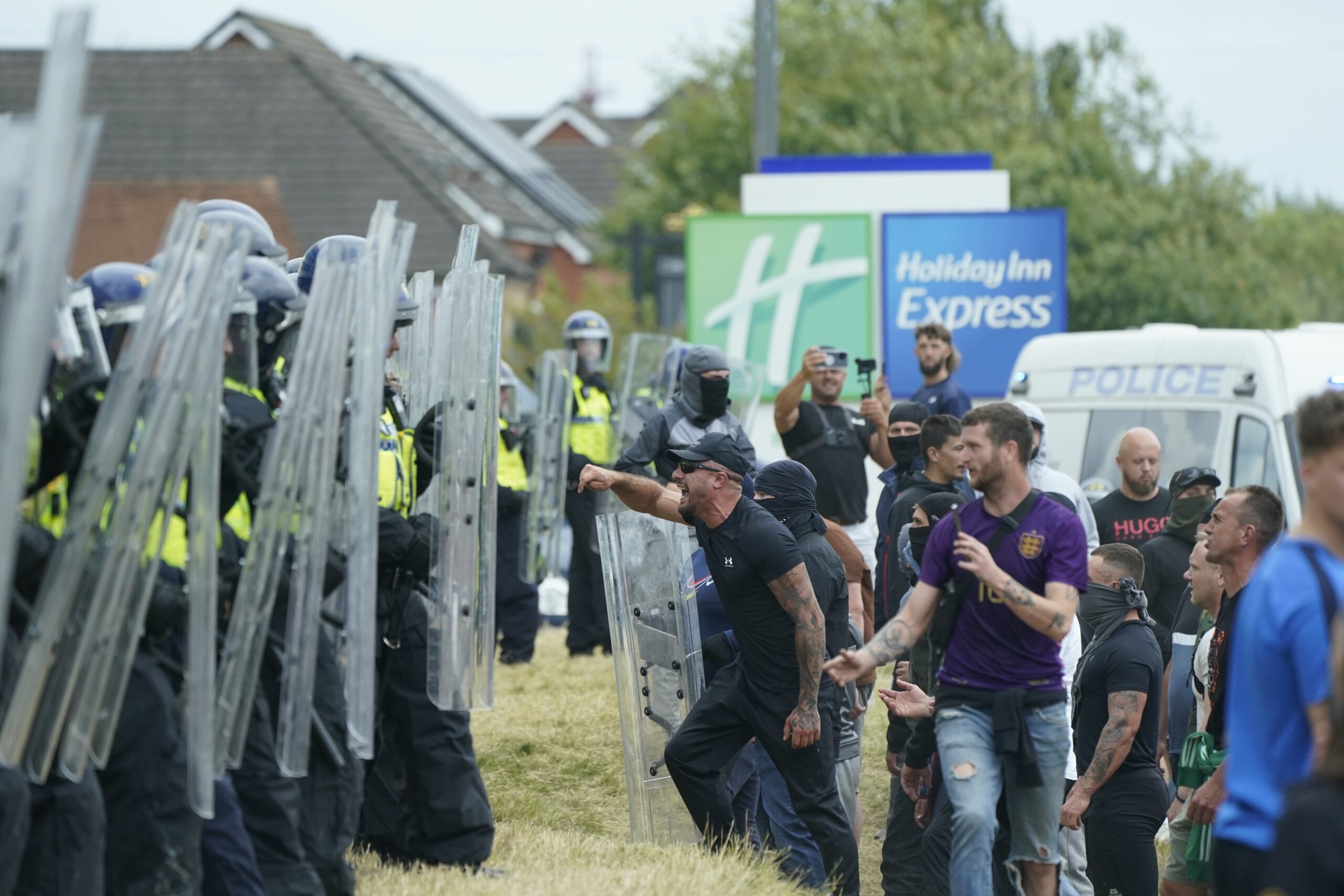Protests and demonstrations that have turned violent are taking a “massive toll” on police forces across the UK, it has been warned, as fears rise over the prospect of another summer of riots.
Recent scenes of unrest in Epping outside a hotel believed to house asylum seekers have already cost £100,000, with Essex Police forced to draft in support from neighbouring forces after the protests turned ugly with bottles and flares thrown at police, injuring eight officers.
Last July and August, 40,000 officer shifts were worked by public order officers over 10 days to tackle the riots sparked by misinformation online after three girls were stabbed to death in Southport.
With concerns mounting that the UK could be facing another summer of unrest, the police union has warned that forces are close to breaking point.
Brian Booth, deputy chair of the Police Federation, said the UK’s national mobilisation plan, which sees officers redeployed to assist other forces when needed, means staff miss rest days and additional hours at a time when resignation rates are “off the scale” due to low morale and pay.

“What we’ve seen throughout this year is sporadic incidents that need dealing with.
“It’s a good idea, we’re not knocking it, but it means officers are pulled from frontline duties and puts an extra demand on forces. It comes from frontline policing and you then have traffic officers missing from duties, those in the community pulled out and they then have to cancel their rest days and extend their working patterns.”
He added: “The demand has got too high, the service is stretched to the maximum. It’s like an elastic band, and all of a sudden, we’ll have a snap. There’s only so much pressure that can be placed on them.”
He stressed that while police chiefs had a designated budget to assist lawful protests, that budget is stretched when demonstrations turn violent and require a larger police response.
“The budgets are cut so slim now that there’s no fat left,” he said.
A new report from the Police Federation, published on Tuesday, found 17,700 police officers have been signed off for mental health reasons – an 182 per cent increase in the past 12 years – with many citing burnout, stress and post-traumatic stress disorder. It comes as anger mounts among police forces, with average annual pay falling by a fifth in real terms since 2010.

“The morale is terrible,” Mr Booth said. “A lot of my colleagues are really angry. People are leaving, we have the highest rate of mid-service leavers, and the resignation scales are off the scale.”
“I know over the next few weeks that the anger will be rising among the ranks now that the government has broken for recess, and we’re the only public service that hasn’t had the pay award. We’ve got an unhappy workforce and I think the government needs to realise that.”
It comes as 1,500 officers will be redeployed from frontline duties to Scotland on Friday to support President Donald Trump’s private visit to his golf courses.
“We were notified over the Trump visit in a short period, we were told they needed 1,5000 officers only last week. That’s one per cent of the population of policing. Chief constables are now trying to scramble around trying to find the numbers to detract from other duties,” he said.

On Tuesday, Angela Rayner addressed the Epping protests and warned the UK faces another summer of riots unless “the government shows it can address people’s concerns”.
In a dramatic intervention, the deputy prime minister said economic insecurity, immigration, the increasing time people spend online, and declining trust in institutions were having a “profound impact on society”.
On Wednesday, Essex Police said they had arrested 10 people after a series of protests outside the Bell Hotel, in Epping, which began after a 38-year-old, believed to be an asylum seeker being housed there, was charged with sexual assault.
Meanwhile, Kemi Badenoch played down the notion of further riots this summer, but said “we need to be very, very vigilant”.
The leader of the Conservatives also blamed Labour for the strains on social cohesion, adding: “Yvette Cooper is waving things through. Rachel Reeves is not providing the money. I’m not surprised. Angela Rayner is saying the social fabric is fraying, but she needs to do something about it.”
